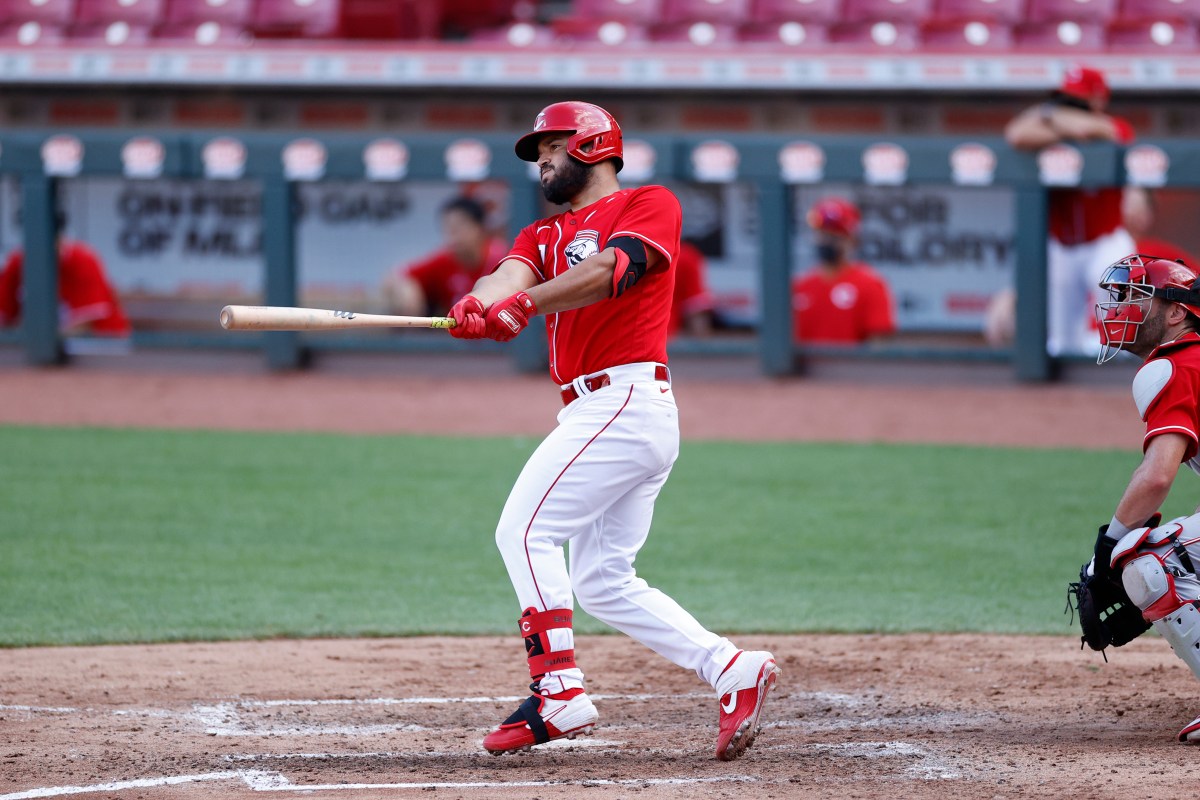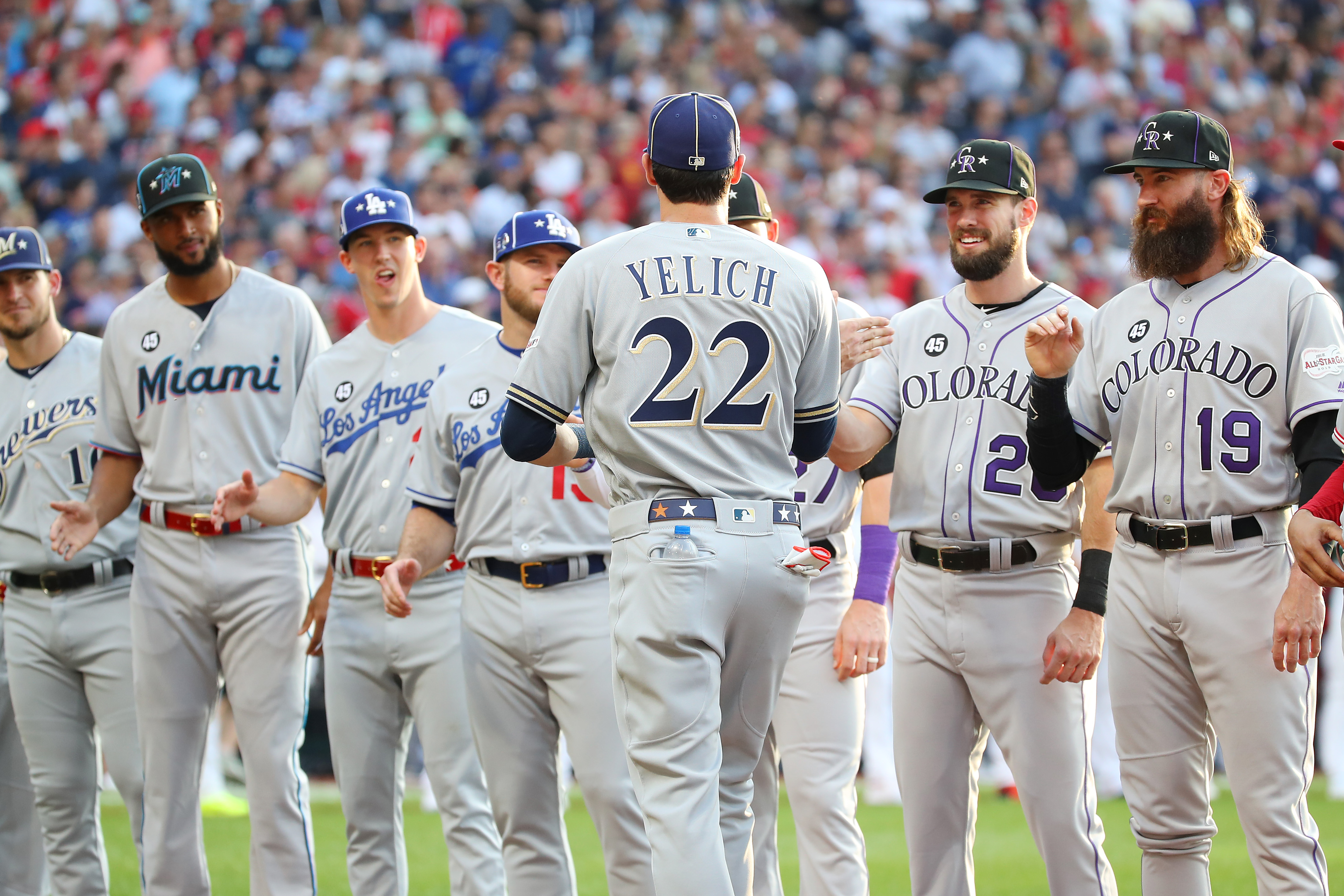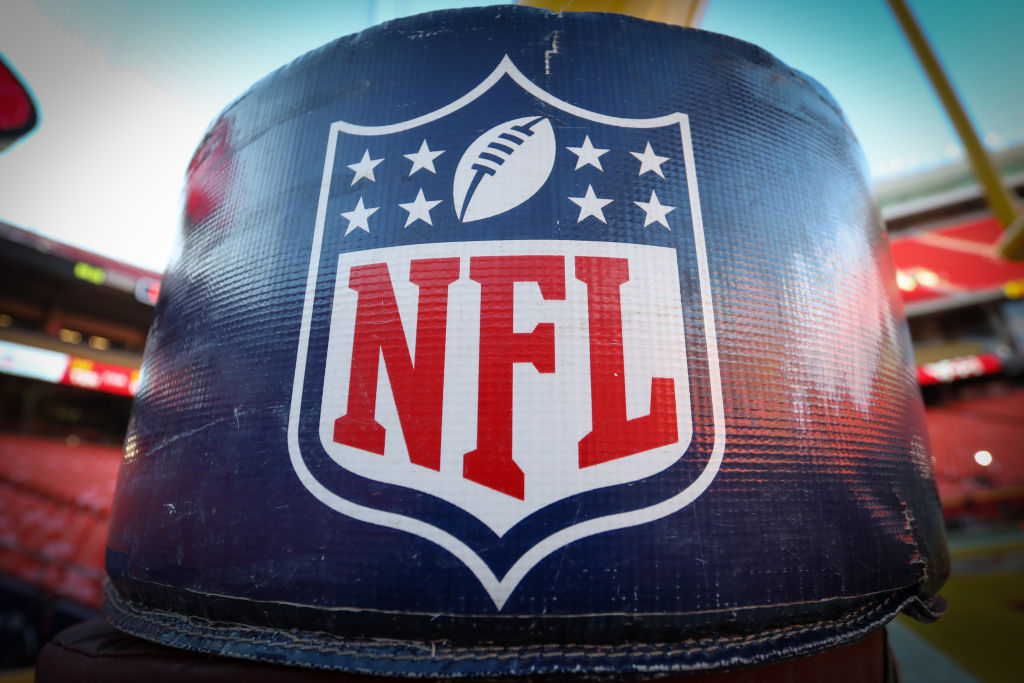UPDATE: Less than 24 hours after this article was published, MLB and the MLBPA agreed to expand the playoffs from 10 teams to 16 for the pandemic-delayed season. While many of the factors mentioned below are still relevant, the last-minute decision does substantially change the playoff format and makes it likely teams with losing records will reach the postseason.
At one point, Major League Baseball’s proposal to the players association for the 2020 season included an expanded 16-team postseason, a scenario that would have given more than half of the league’s 30 teams a playoff berth.
Though that proposal was not initially accepted in the plan MLB and the MLBPA ultimately agreed upon a plan for their abbreviated 60-game season, reports surfaced yesterday that the two sides are still considering it. Regardless, fans should be prepared for one of the most hotly contested Wild Card races in recent memory.
Per win-loss record estimates from Fangraphs, 17 teams are projected to win between 30 and 33 games during the 2020 MLB campaign.
With only three teams projected to win more than 33 games (the Yankees, Dodgers and Astros), those 17 teams should all, in theory, be vying for the seven remaining playoff spots during a September pennant race that, due to the shortened season, will begin after only about a month of baseball has been played.
A little context: in the eight seasons since MLB expanded its playoff field from eight to 10 clubs, 80 teams have qualified for the postseason and their median win total was 93.5. Adjusting for a 60-game season, a record of 34-26 is the 162-game equivalent of going 92-70. So based on the historic benchmark of making the playoffs, winning 33 games should keep a team in the mix for the postseason, winning 34 should give them a good shot and winning 35 should nearly guarantee a ticket to October.
Since the shortened season will be unbalanced and place an emphasis on divisional play (each team will play 10 games apiece against its division, 40 games in all) and regional interleague play (for example the AL East will play 20 games against the NL East), races across the league should be even tighter than usual, and the final standings could end up being decided by a couple of games or even require a tiebreaker or two.
Here are the number of 30-to-33-win teams per division, as projected by FanGraphs:
- NL East: 4
- NL Central: 4
- AL Central: 3
- NL West: 2
- AL East: 2
- AL West: 2
Given the concentration of the projected 30- to 33-win teams, it looks as if it will be substantially more difficult for the seven teams in the AL and NL Central (Indians, Twins, White Sox, Reds, Brewers, Cubs and Cardinals) and six teams in the AL and NL East (Red Sox, Rays, Braves, Nationals, Mets and Phillies) to make the playoffs than it will be for the four teams in AL and NL West (Athletics, Angels, Padres and Diamondbacks) to qualify for the postseason, since they will all be beating up on each other.
In also likely means it’s going to be a long year for non-contenders in those divisions like the Orioles, Marlins, Royals and Tigers despite the shortened season.
Racking up victories against bad teams and keeping pace by splitting series with better clubs will be vital, and should make every game on the schedule — from Opening Day to the season finale — as close to must-watch as MLB can possibly be.
The trade deadline, which is only five weeks away, should offer additional intrigue, as more than half the league could possibly still be in contention when it arrives.
“You know that feeling you have when you’re two weeks out from the deadline in a normal year and you’re calibrating every day how motivated you should be to buy?” an NL executive said to The Athletic. “You’re literally making those calibrations every day. But now the value of ‘every day’ is amplified by almost three. So I think you’re going to see some wild emotional swings in some of these front offices. It’s going to be very weird and very strange.”
For a sport that’s struggled to gain traction on the national stage despite being America’s pastime, it could be exactly what the doctor ordered.
The Charge will help you move better, think clearer and stay in the game longer. Subscribe to our wellness newsletter today.


















